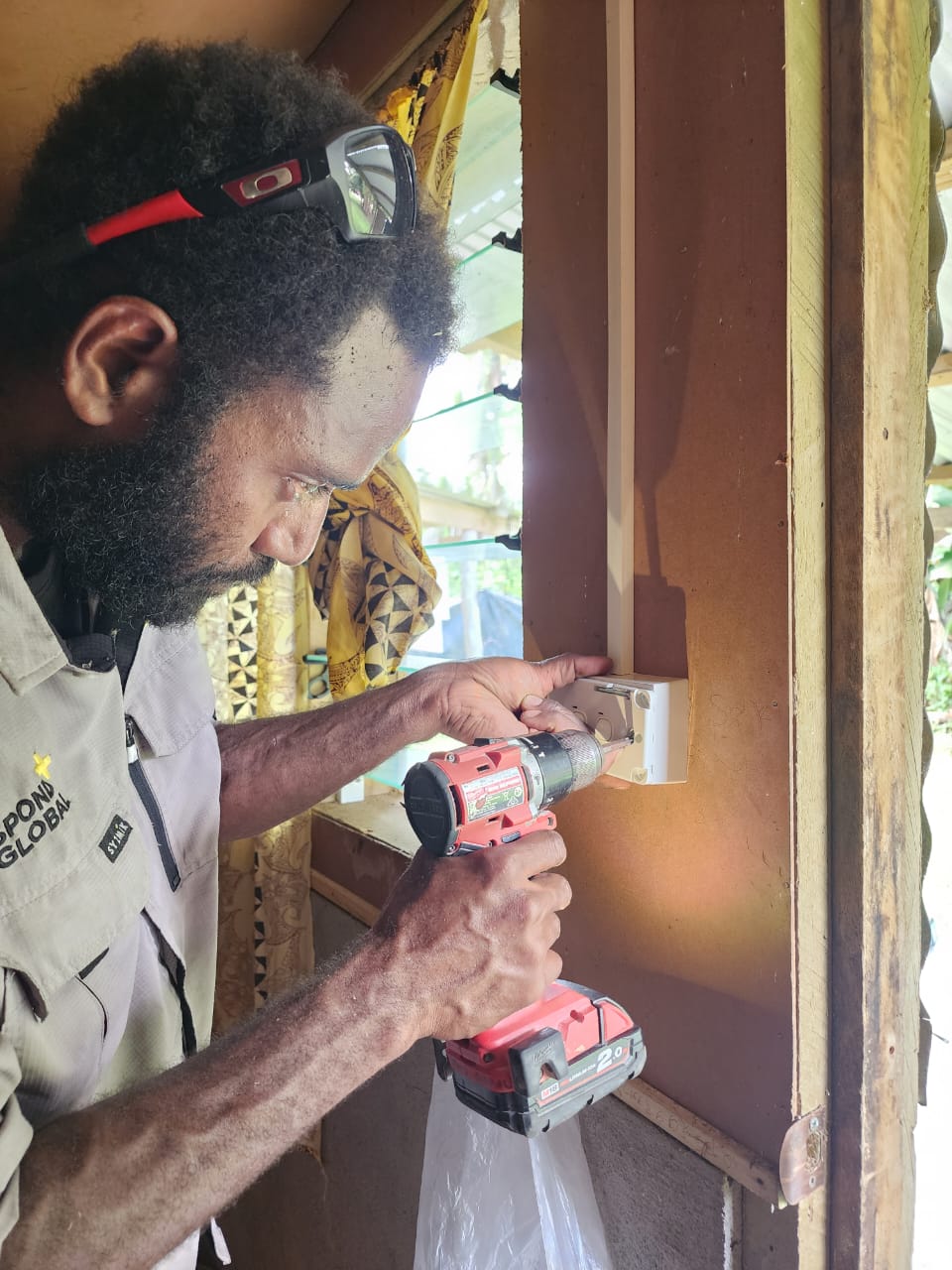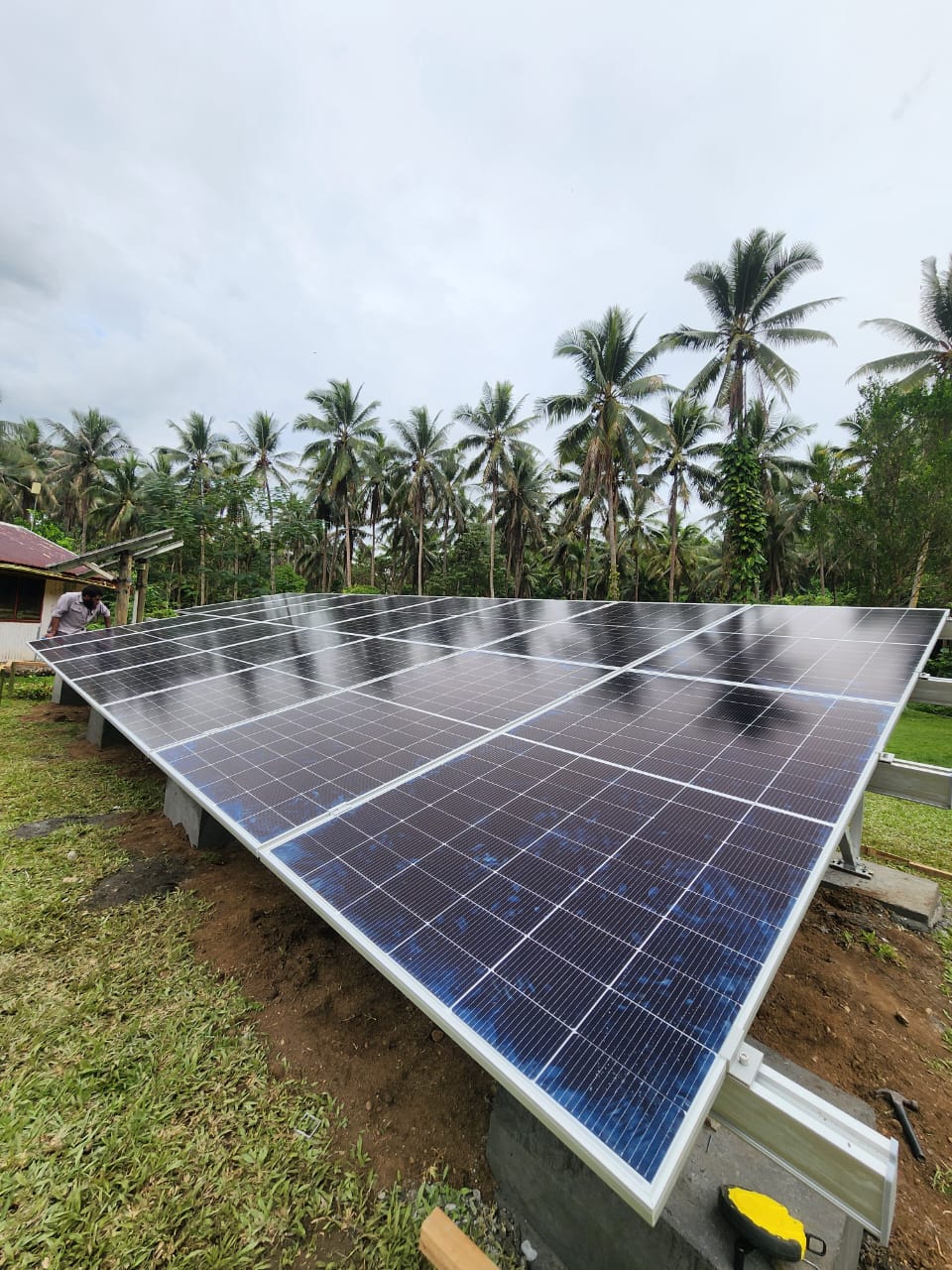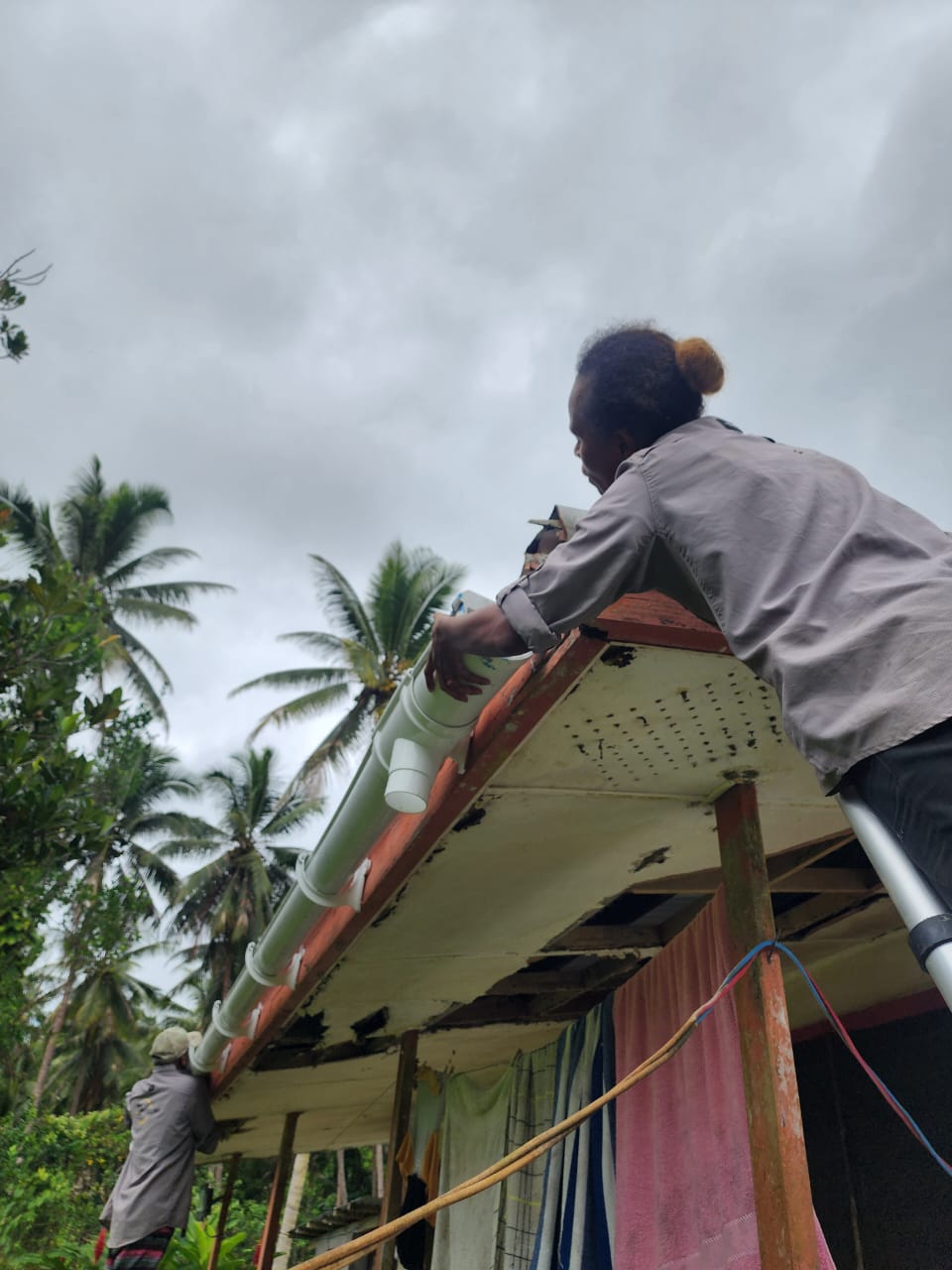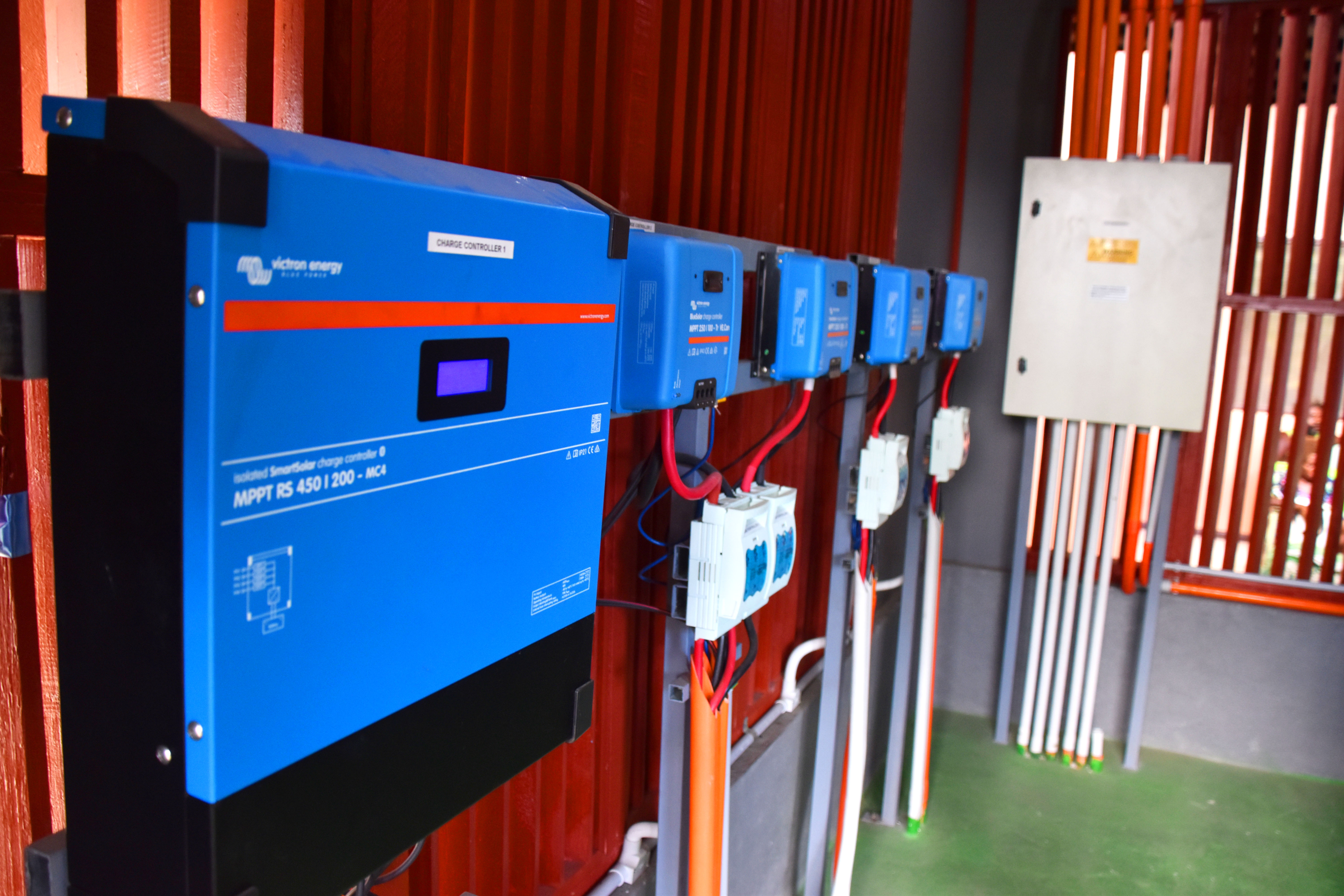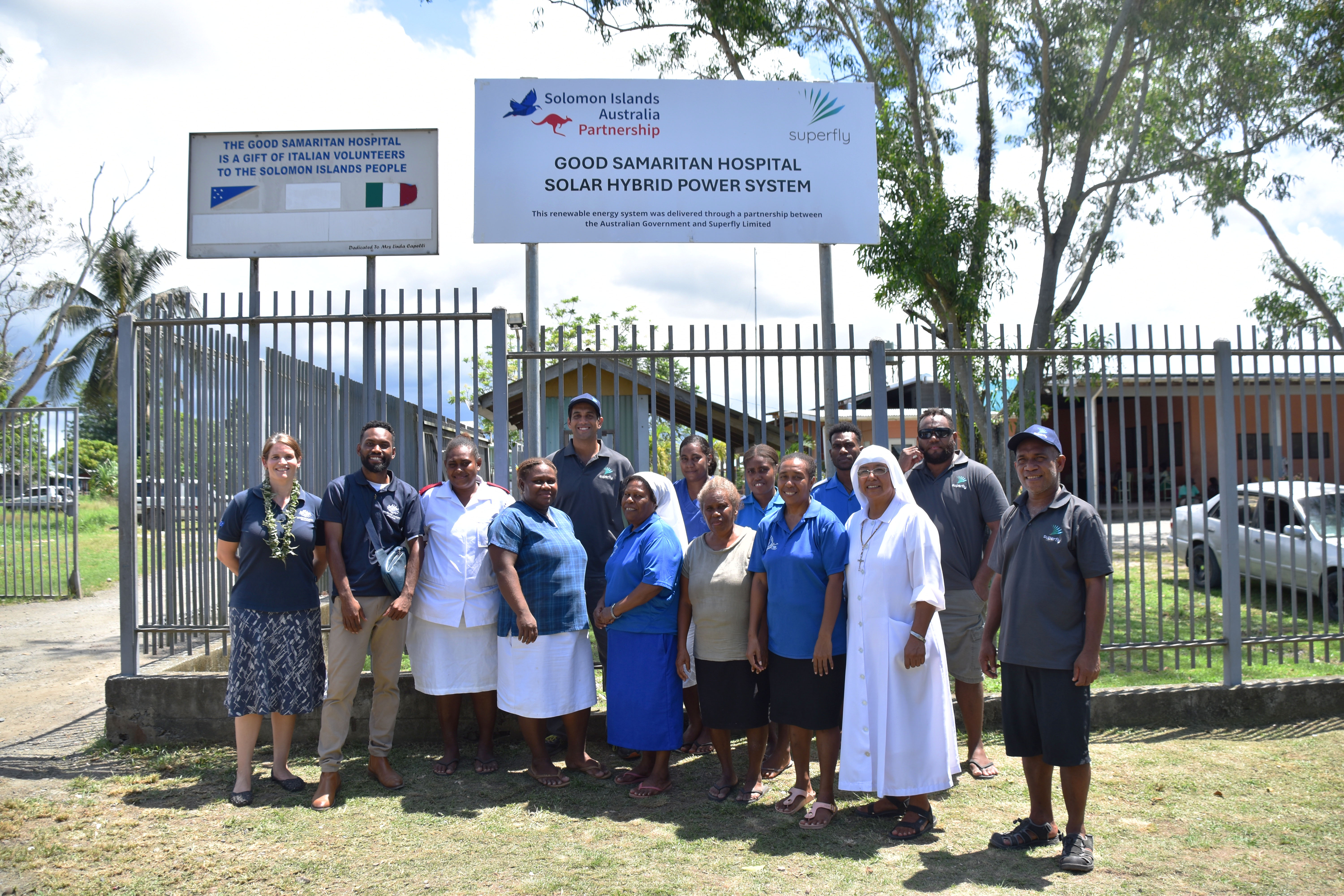REnew Pacific takes centre stage at the COP30 Australian Pavilion
Pacific-led clean energy solutions lit up the COP30 Australian Pavilion as the REnew Pacific delegation took to the stage in Belém. A standing-room-only crowd gathered to hear how Pacific communities are leading the charge on climate resilience through off-grid renewable energy, with support from the Australian Government through REnew Pacific.
From solar-powered health centres in Vanuatu and hybrid systems in Solomon Islands to clean energy for schools and communities in Papua New Guinea, the session showcased community-led clean energy transforming lives across the region.
Australia’s Ambassador for Climate Change, Will Nankervis, welcomed the audience before REnew Pacific Team Leader, Mohammed Angawi, opened the session with reflections on the program’s first year, highlighting how partners are delivering reliable power to schools, health facilities and community infrastructure, strengthening daily life and climate resilience across the region.
Dr Basil Leodoro, Respond Global’s Director of HELPR-1 Operations then offered an inside look at the game-changing HELPR-1 vessel, which is bringing dependable solar power to outer-island health centres in Vanuatu. These upgrades are enabling nurses to treat patients safely after dark and maintain cold-chain storage for essential medicines. Find out more.
Dr Genevieve Nelson, KTF’s Chief Executive, Officer, showcased how integrated solar mini-grids are transforming health and education outcomes in some of Papua New Guinea’s most remote provinces. With light in clinics and classrooms, communities now have safer births, improved healthcare and stronger learning environments. Find out more.
Tapera Bird, Superfly’s General Manager shared how new and upgraded solar systems are supporting clinical teams, nurses, students and community groups with clean, reliable energy across Solomon Islands. Find out more.
If you missed it, you can watch the recap on DCCEEW’s YouTube channel here.
REnew Pacific is Australia’s $75 million investment delivering off-grid renewable energy to remote and rural communities across the Pacific and Timor-Leste. Made possible through the Pacific Climate Infrastructure Financing Partnership (PCIFP), a $350 million initiative delivered by the Australian Infrastructure Financing Facility for the Pacific (AIFFP) and implemented by Palladium, the program continues to expand access to clean, reliable power through locally led partnerships across the region.
